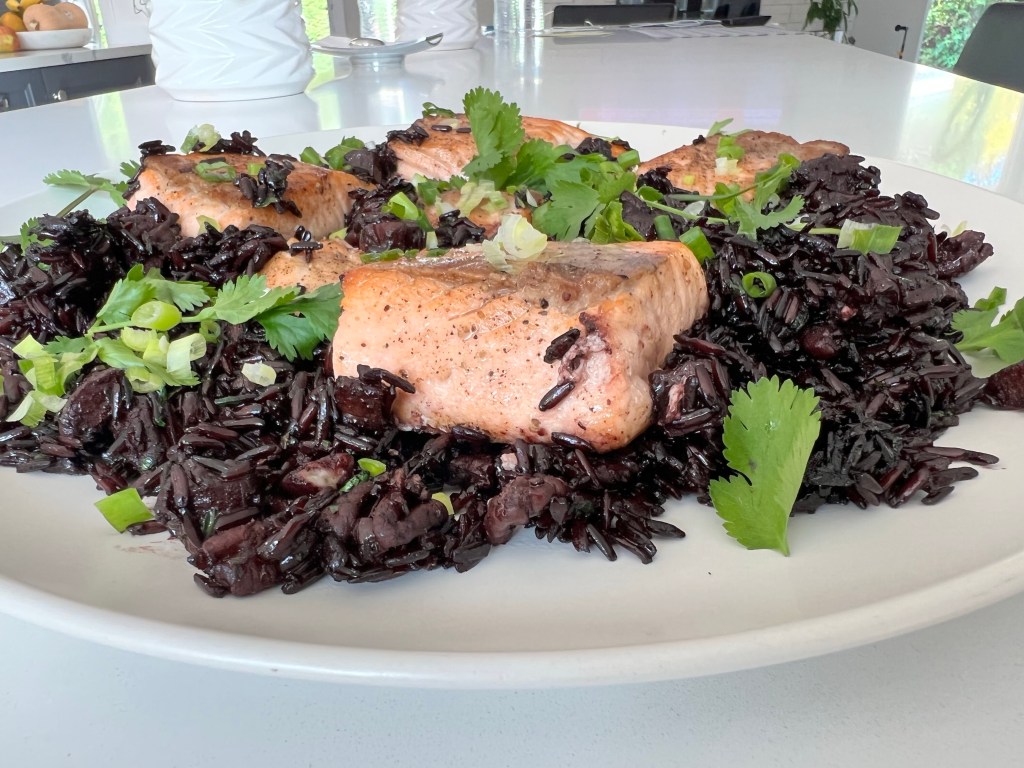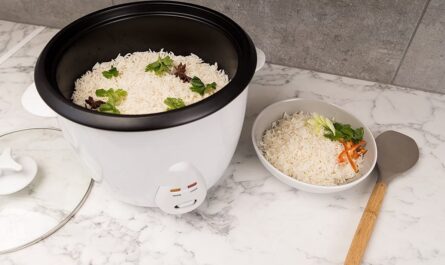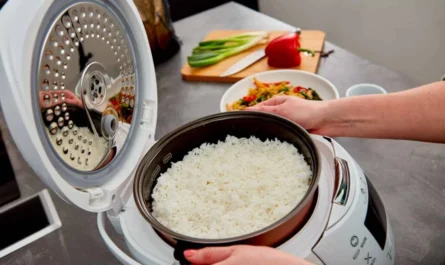In recent years, there has been a growing interest in the potential health benefits of black rice, particularly in relation to aging. This unique grain, often referred to as ‘forbidden rice,’ has been consumed for centuries in Asia, but it is now gaining popularity worldwide. The allure of black rice lies not only in its rich, nutty flavor and striking appearance but also in its powerful nutritional properties. As we delve into the connection between black rice and aging, we will explore how this superfood can contribute to a healthier and more youthful life.

What Makes Black Rice Unique?
Black rice stands out from other rice varieties due to its distinctive dark purple-black color. This pigment is a result of high levels of anthocyanins, a type of antioxidant known for its numerous health benefits. Unlike white rice, which has been stripped of its bran and germ, black rice retains its outer layer, making it a whole grain rich in fiber and essential nutrients.
Anthocyanins and Their Role in Anti-Aging
Anthocyanins are a group of flavonoids found in various foods like blueberries, red cabbage, and of course, black rice. These compounds are renowned for their antioxidant properties, which help neutralize harmful free radicals in the body. By reducing oxidative stress, anthocyanins can slow down the aging process and reduce the risk of age-related diseases.
The Nutritional Profile of Black Rice
Black rice is a nutritional powerhouse, offering a range of vitamins, minerals, and other beneficial compounds. It is an excellent source of iron, vitamin E, and several B vitamins, all of which play vital roles in maintaining good health and vitality.
Iron: Fueling Your Energy Levels
Iron is an essential mineral that supports the production of red blood cells, which are responsible for transporting oxygen throughout the body. Adequate iron levels are crucial for maintaining energy and preventing fatigue, particularly as we age.
Vitamin E: Protecting Your Cells
Vitamin E is a potent antioxidant that helps protect cells from damage caused by free radicals. This vitamin plays a crucial role in maintaining skin health, keeping it supple and youthful. By incorporating black rice into your diet, you can boost your vitamin E intake and support your skin’s natural aging process.
Black Rice and Brain Health
As we age, cognitive health becomes increasingly important. The anthocyanins in black rice have been shown to improve brain function and reduce the risk of neurodegenerative diseases such as Alzheimer’s. The antioxidants in black rice help protect brain cells from oxidative stress and inflammation, promoting better memory and cognitive ability.
Reducing Inflammation
Chronic inflammation is a major contributor to aging and age-related diseases. The anti-inflammatory properties of black rice can help mitigate the effects of inflammation, promoting better overall health. By including black rice in your diet, you can potentially reduce the risk of chronic diseases and support longevity.
Black Rice and Heart Health
Heart health is a vital aspect of aging gracefully. The fiber and antioxidants in black rice work together to lower cholesterol levels and improve cardiovascular health. A diet rich in whole grains, including black rice, can reduce the risk of heart disease and promote a healthy heart as you age.
Lowering Cholesterol
High cholesterol levels can increase the risk of heart disease. The fiber content in black rice helps lower LDL (bad) cholesterol levels, while its antioxidants prevent cholesterol from oxidizing, reducing the risk of plaque buildup in the arteries.
Incorporating Black Rice into Your Diet
Adding black rice to your diet is a simple and delicious way to boost your nutrition and support healthy aging. Its unique flavor and texture make it versatile for a variety of dishes. You can use it as a base for salads, bowls, or stir-fries, or even incorporate it into sushi for an exotic twist. For inspiration, check out our black rice soup recipe.
Cooking Tips for Black Rice
Cooking black rice is similar to cooking other whole grains. Rinse the rice thoroughly before cooking to remove any impurities. Use a ratio of 1:2 for rice to water, and cook it on low heat for about 30-40 minutes until the grains are tender. For more detailed instructions, you can visit choosing sushi rice.
Black Rice for Weight Management
Maintaining a healthy weight is crucial for healthy aging. The fiber-rich content of black rice promotes satiety, helping you feel full for longer periods. This can aid in weight management by reducing the urge to snack on unhealthy foods. To learn more about how black rice can support your weight loss goals, visit our detailed guide on black rice for weight loss.

Faq Section
What is the best way to cook black rice?
The best way to cook black rice is by rinsing it thoroughly and using a 1:2 ratio of rice to water. Cook it on low heat for 30-40 minutes until the grains are tender.
Can black rice help with weight loss?
Yes, black rice is high in fiber, which promotes satiety and can help with weight management by reducing the urge to snack on unhealthy foods.
Is black rice suitable for people with gluten intolerance?
Yes, black rice is naturally gluten-free and is a safe option for individuals with gluten intolerance or celiac disease.
This article contains affiliate links. We may earn a commission at no extra cost to you.




